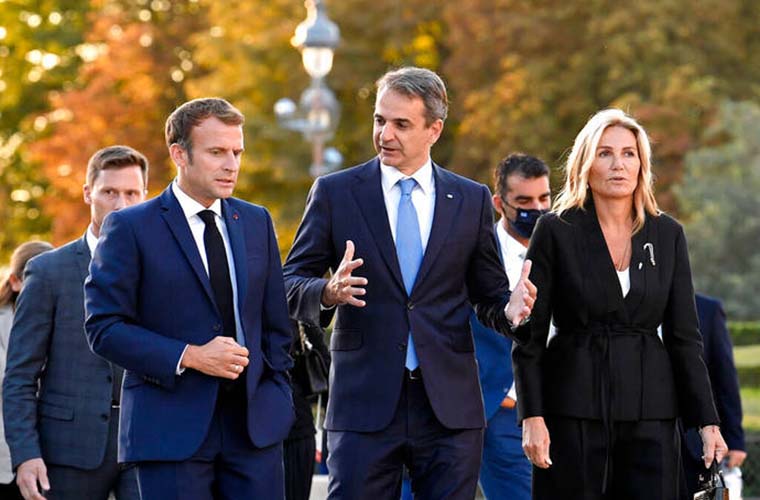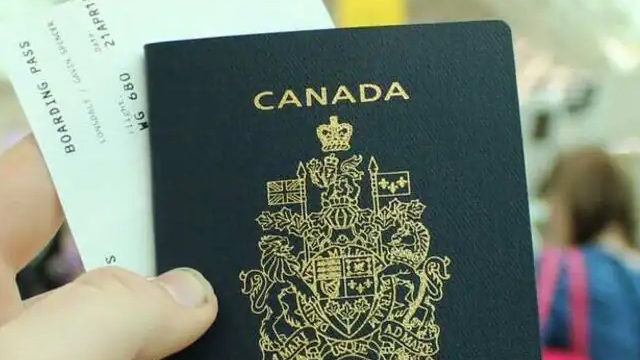Popular News
France and Greek ink major defense deal

France and Greek ink major defense deal on Tuesday — a signal Paris is cementing military ties within Europe after a diplomatic falling out with Australia and the U.S. over a canceled submarine contract.
The new deal is expected to include commitments from Greece to purchase at least €3 billion worth of French warships, as well as a clause on mutual defense assistance, according to Greek government officials.
France and Greek ink major defense deal
The deal builds on a previous agreement to purchase French fighter jets and features an option for Greece to buy additional warships in the future — two clauses that could push the contract’s total value above €5 billion.
The partnership occurs in the shadow of a diplomatic blow for France. Nearly two weeks ago, Australia, the U.S. and the U.K. unveiled a surprise military pact, known as AUKUS, that prompted Canberra to rip up a €50 billion submarine deal with Paris. The announcement enraged France, which urged its European neighbors to focus on shoring up their own defensive capabilities in response.
Tuesday’s pact will help push that agenda, giving France’s defense industry a much-needed boost and advancing French President Emmanuel Macron’s desire to lead Europe’s military efforts.
“The Europeans must stop being naive,” Macron said as he announced the deal Tuesday. “When we are under pressure from powers which at times harden, we need to react and show that we have the power and capacity to defend ourselves. Not escalating things, but protecting ourselves.”
European pillar within NATO
Macron insisted the pact is not “an alternative to the United States alliance.” But, he added pointedly, it is a way “to take responsibility of the European pillar within NATO and draw the conclusions that we are asked to take of our own protection.”
Defense experts immediately noted the ties between AUKUS and Tuesday’s announcement.
“France is taking everything in Greece and can come forward presenting this agreement on defense cooperation and cohesion as the basis of the European defense integration and the beginning of a European army,” said Faithon Karaiosifidis, a defense expert and publisher of the Greek magazine Flight.
The Greek navy has been looking for a long time to upgrade its fleet by buying new frigates and modernizing its existing ones. The need became more acute last year, as Greece faced growing tensions with Turkey in the Aegean and the Eastern Mediterranean Seas. The two sides exchanged daily barbs and came closer to a full-blown clash than they had in 25 years.
In recent months, the Greek navy received bids from six countries, including France, the U.S., the Netherlands and the U.K. France’s proposal carried the heftiest price tag. As the navy reviewed the proposals, France submitted an improved offer in recent days, though it was still pricier than the other bids, one official said.
Defense assistance
“This is definitely a political decision, not one taken by the Greek navy,” Karaiosifidis said. “The cornerstone of the deal is the defense assistance clause. One could not imagine something similar coming from the other countries.”
Greek Prime Minister Kyriakos Mitsotakis was blunt about his interest in strengthening European military links through the deal.
“This will tie us for decades,” he said in announcing the deal. “This opens the door to the Europe of tomorrow that is strong and autonomous, capable of defending its interests.”
The deal could include up to six warships — three frigates set for delivery starting in 2025, with the option to buy three corvettes down the road. Greece also agreed earlier this month to purchase six more Rafale fighter jets from France.
The mutual defense clause leaves open the question of whether or how France will commit to backing Greece if tensions flare up again with Turkey. The text contains a provision pledging each country will come to the other’s aid in the event of an attack on its territory. But it’s unclear what that might mean for Greece’s conflict with Turkey over ill-defined maritime zones.
Military buildup for Greece
The agreement is the latest step in a military buildup for Greece, spurred on by its standoff with Turkey.
Last January, Athens placed an order for 18 French Rafale fighter jets, 12 of them second-hand, in a €2.5 billion deal. In September, Mitsotakis announced plans to acquire an additional six planes.
The shopping spree was a notable turnaround for Athens, which repeatedly slashed its defense budget following the 2008 financial crisis. By 2018, the country’s military budget was just €3.75 billion, down from €7.24 billion in 2008.
Still, even before the latest deals, Greece was spending 2.28 percent of its GDP on defense, well above the EU average of 1.2 percent and near the top among NATO members. And between 2019 and 2020, Athens quintupled its military spending. However, the country’s GDP has shrunk by a quarter over the past decade.
Greek officials said the U.S., considered the other prominent bidder for the latest warship and fighter jet contract, will not raise any issues with Tuesday’s deal in the wake of the AUKUS fallout. Washington has also hardly been left empty-handed when it comes to Greek military deals. Athens will soon sign a five-year extension on a defense cooperation agreement with the U.S., eschewing the typical one-year renewal cycle.
“This isn’t an alternative to the United States alliance,” Macron said Tuesday. “It is not a substitution, but to take responsibility of the European pillar within NATO and draw the conclusions that we are asked to take of our own protection.”












